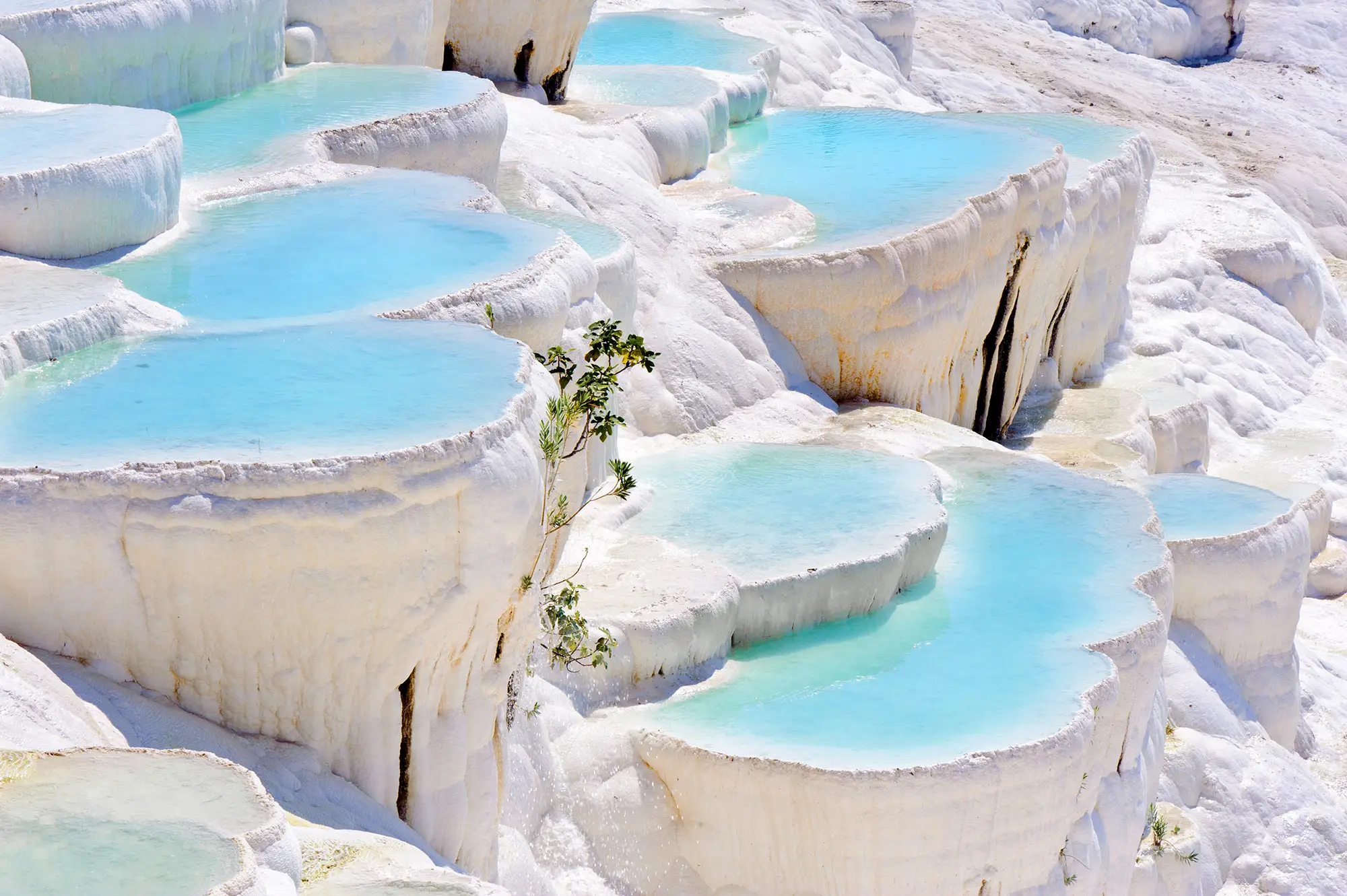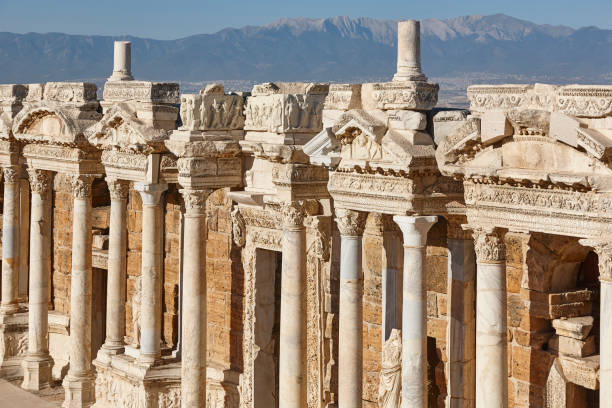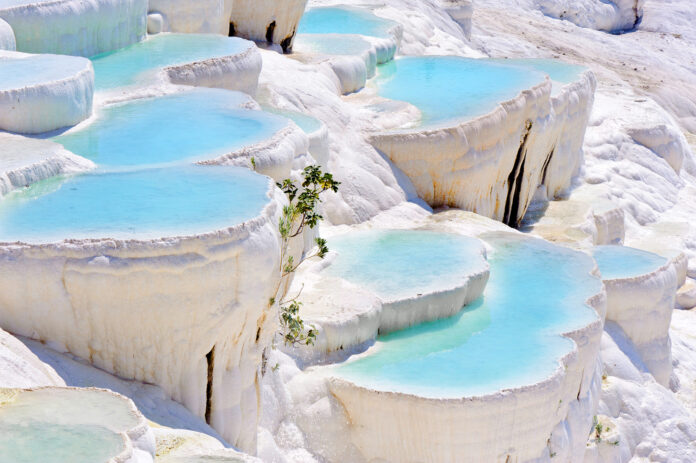Pamukkale, meaning “Cotton Castle” in Turkish, is a town located in western Turkey, renowned for its mineral-rich thermal waters that flow down white travertine terraces. Situated in the Denizli province, Pamukkale covers an area of 1,077 hectares and offers visitors the unique experience of swimming in these natural thermal pools.
Historical and Cultural Significance
Pamukkale was originally used as a Roman spa, and its neighboring site, Hierapolis, is an ancient Roman spa city founded around 190 B.C. The ruins of Hierapolis include a well-preserved theater and a necropolis with sarcophagi stretching for 2 kilometers. This historical backdrop adds a layer of cultural richness to the natural beauty of Pamukkale.
Pamukkale and Hierapolis were designated as a UNESCO World Heritage Site in 1988. The area is famous for its carbonate mineral deposits left by the flowing thermal spring water, creating spectacular natural landscapes that have attracted visitors for thousands of years. The waters are believed to have natural healing powers, adding to the allure of this destination.
Geographical Features and Formation
Pamukkale’s striking white terraces are formed by a unique natural process. A spring with high dissolved calcium bicarbonate content cascades over the edge of a cliff, cooling and hardening to leave calcium deposits. These deposits create natural pools, shelves, and ridges, forming the famous travertine terraces where visitors can bathe in the warm, mineral-rich waters.
Top Attractions At Pamukkale
Pamukkale offers a variety of attractions, including:
- Travertine Terraces: The main highlight, where visitors can enjoy bathing in the warm thermal pools.
- Hierapolis City Ruins: Explore the ancient Roman spa city’s remains.
- Hierapolis Theater: A well-preserved Roman theater.
- Pamukkale Antique Pool: Also known as Cleopatra’s Pool, where visitors can swim among ancient columns.
- Hierapolis Museum: Showcases artifacts from the site.
- Pamukkale Castle: Offers historical insights and scenic views.
- Laodikeia and Aphrodisias: Nearby ancient cities worth visiting.
- Karahayit Hot Springs: Known for its red thermal waters, different from Pamukkale’s white travertines.
Tourism and Visitor Experience
Pamukkale is one of Turkey’s most popular tourist destinations, drawing over 2 million visitors annually. The best time to visit is during the spring (April to mid-June) or autumn (mid-September to October) when the weather is mild. Summers can be unbearably hot, while winters might bring snowfall.
Pamukkale is easily accessible by bus and train from Istanbul, with a drive taking about 2.5 hours. Entrance fees are affordable, around 9 USD per adult and child. Accommodation options range from 3-star to luxury hotels, offering various amenities and price points.
Weather and Best Time to Visit
Pamukkale experiences hot, dry summers and cold, wet winters. The temperature ranges from 36°F to 96°F, rarely dipping below 27°F or exceeding 102°F. The best time to swim in the pools is during the spring and autumn when the weather is perfect for outdoor activities. Winter can be too cold for swimming, while summer can be extremely hot.
Accommodation
Pamukkale offers a variety of accommodation options, catering to different preferences and budgets:
- Best Hotels: Venus Suite Hotel, Bellamaritimo Hotel, Mucize Termal Spa.
- Nice View Hotels: Alida Hotel, Ozturk Hotel.
- Family-Friendly Hotels: Venus Suite Hotel, Mucize Termal Spa, Aspawa Hotel.
- Couple-Friendly Hotels: Mucize Termal Spa, Venus Suite Hotel, Bellamaritimo Hotel.
Average costs per night:
- 3-star hotels: $50 USD
- 4-star hotels: $62 USD
- 5-star hotels: $111 USD
Pamukkale is a destination that combines natural beauty with historical significance. From its unique travertine terraces and thermal pools to the ancient ruins of Hierapolis, it offers a rich and memorable experience for all visitors. Whether you are looking for a therapeutic soak in mineral-rich waters, an exploration of ancient Roman history, or simply a picturesque landscape, Pamukkale is a must-visit destination in Turkey.


